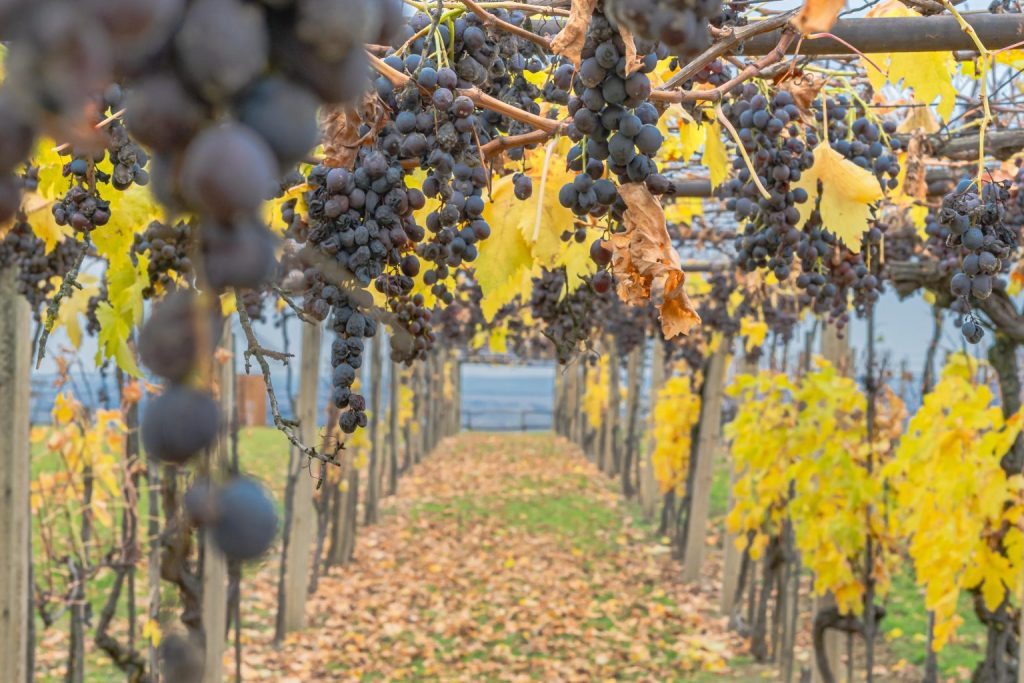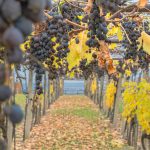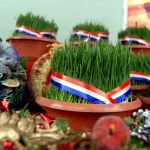July the 27th, 2024 – Many Croatian traditions are tied to Vinkovo (or Vincekovo, Vinceška, or Vincelovo) and the most common practice is blessing the vines.
the croatian tradition of blessing the vines for a more fruitful harvest –vinkovo
In a prayer with the priest, winemakers with their friends invoke God’s blessing “for bountiful harvests and abundant fruits of all kinds, above all rich grapes” in the coming year, but also protection of the vines from frost, hail, disease, pests… in short, anything that can cause damage.
For these Croatian traditions in the eastern part of the country, holy water is sprinkled or blessed wine poured over a vine on which kulen, sausage or schvargl are hanged. This will ensure that the year’s clusters of grapes are at least the same size as the meat.
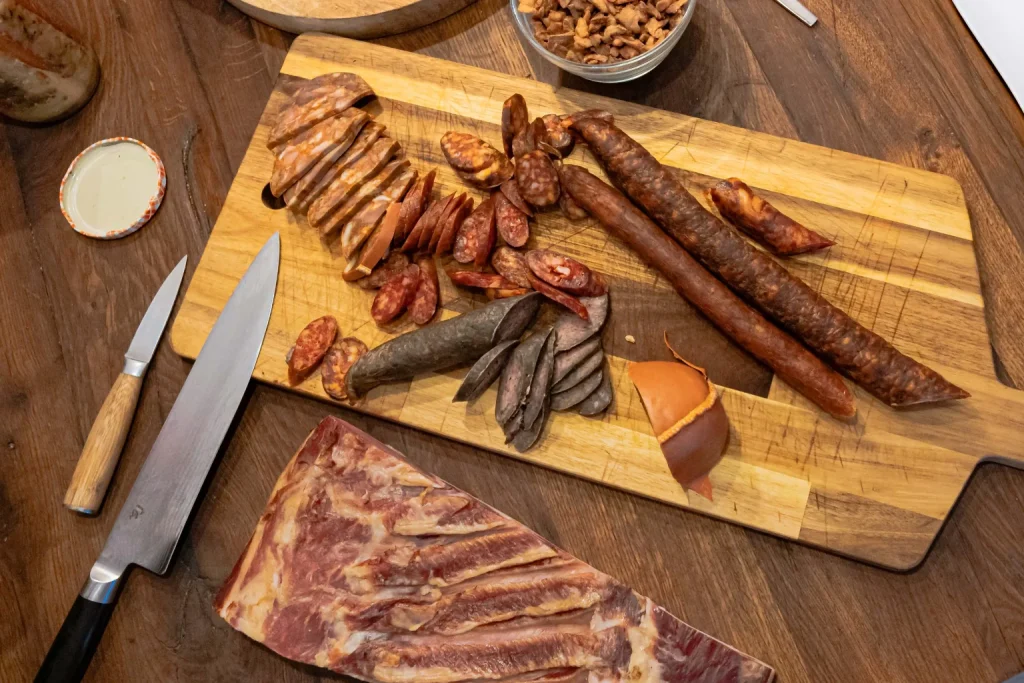
In some places, the host consecrates the vineyard by sprinkling holy water on all four sides or pouring blessed wine in its four corners. In the northwestern parts of the country, a prayer is said to God to protect the vine and keep it safe from hail and frost, and to St. Vincent for a good year ahead. The traditional prayer in Croatian: “Dragi Bog čuvaj trsa mog, evo Ti zrelog vina da bu dobra godina. Oblake razmakni, sunce primakni, mraza zgoni, na tuču zvoni. Se bum obdelal da bi v jesen popeval. Rozgvu si bum zel i vu vodu del. Sv. Vincek pokaži svetu kak bu vu novom letu”.
And just as this prayer says, the host then takes a pair of scissors and with the first cut of the vine marks the beginning of the year’s pruning and thus symbolically starts the new season. A cut off branch is taken into the house, where it buds in a warm place, and based on the number of buds, the hosts can predict how fruitful their crop and the year’s harvest will be.
Kulen for the Vincilir (Vineyard Master)
Traditionally, after the “official” part, many guests toast with good wine to a successful start of the year, cheerfully singing, next to an open fire. And where there’s fire, there’s bacon or sausage roasteing on sticks, maybe some shepherd’s or wine bean stew cooking. The crowd also enjoys the kulen that hanged on the blessed vine. Traditionally, though, this kulen would be given as a reward to the Vincilir, the man who looked after and cultivated the vineyards ‘as if it were his own’. This stems from times when Vincilirs had to travel by horse-drawn carriages from the Slavonian villages to the vineyards, which took a lot of time and energy.
In some Croatian regions, this celebration is exclusively for men,since according to another popular belief, the presence of children or women would invite hail.
In Moslavina, on the other hand, beliefs dictate that there should be enough wine at the celebration to last until the evening, because otherwise (again) hail would destroy the vineyard. If water leaks from the eaves on the day, the year will be wet and the harvest rich. To protect themselves from evil spells, people there hang a wreath of garlic on the porch.
As part of these sorts of Croatian traditions, some winemakers also open their cellars for the blessing of young wine, so on that day fans of this elixir can have a long celebration with a spontaneous tour of several cellars along a wine road. It is practically unimaginable that any host who cares about their reputation does not host everyone who comes by on that day.
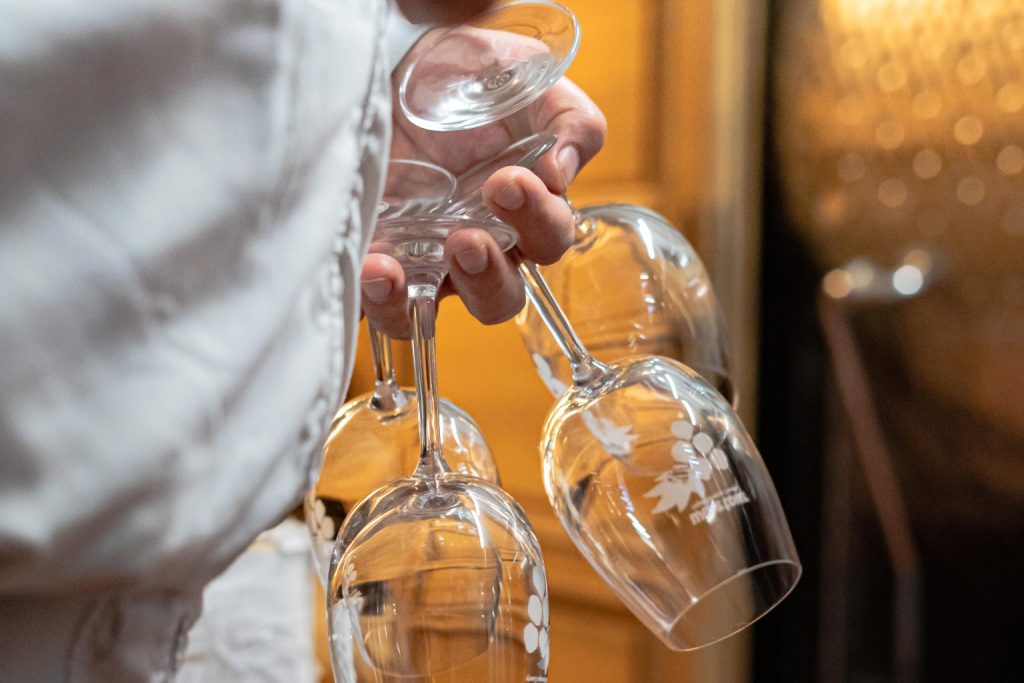
five “commanded” holidays
It is interesting that the ‘wine saint’ does not really have any concrete connection with vineyards or wine, if this clarification is sought in a religious sense. According to his biography, this early Christian martyr, deacon Vincentius lived in Spain, today’s Saragossa, in the 4th century, during Diocletian’s persecution of Christians. In order to renounce his faith, the proconsul Dacian subjected him to terrible torture and threw his body to the beasts. According to the legend, his tortured body was saved by a raven, so he was thrown into the sea with a stone around its neck, but the sea washed his body ashore. He is commemorated on the day he died in 304, and his relics are preserved in Lisbon.
It is to be assumed, therefore, that the connection can be sought with some pre-Christian or pagan ritual of farmers, given that it is in the calendar part of the year when the beginning of the new vegetation and the new cycle of agricultural work is expected. Some associate the celebration of Vinkovo St. Vincent with the god Dionysus, who was celebrated in ancient Greece at the beginning of February. Barrels with new wine would be opened, all to be drunk, thus marking, just like Vinkovo, the awakening of nature.
Most people support the simplest interpretation, according to which they began to worship this saint as their patron because the root of his name in many languages is ‘wine’.
All in all, Vinkovo is one of the five “commanded” holidays of winemakers rooted in Croatian tradition. There are also St. Juraj (April 23), St. John the Baptist (June 24), St. Michael (September 29) and St. Martin (November 11). Traditions dictate that for Jurjevo new vines should be planted, while pruning, fertilizing and digging of the old vines should be completed. For St. John the Baptist, the vines are should be weeded and sprayed for the second time. After this memorial day in the vineyard, the vines are plucked and regular spraying is done, then Miholje awaits, which marks the beginning of the harvest. Active work ends, and winemaking begins for Martinje, when young wine, freshly produced must is blessed.

